Artificial Intelligence (AI) has emerged as one of the most transformative technologies of the 21st century. With its ability to automate repetitive tasks, analyze vast amounts of data, and make predictions, AI has already begun to transform industries ranging from healthcare to finance. As AI technology continues to advance at an exponential rate, it is essential to understand its potential impact on society and develop strategies to navigate its risks and benefits. In this article, we will explore the impact of AI technology, such as ChatGPT, on society by 2030 and strategies to navigate it.
Get to know ChatGPT: The Talkative AI that Knows it All!
What is ChatGPT?
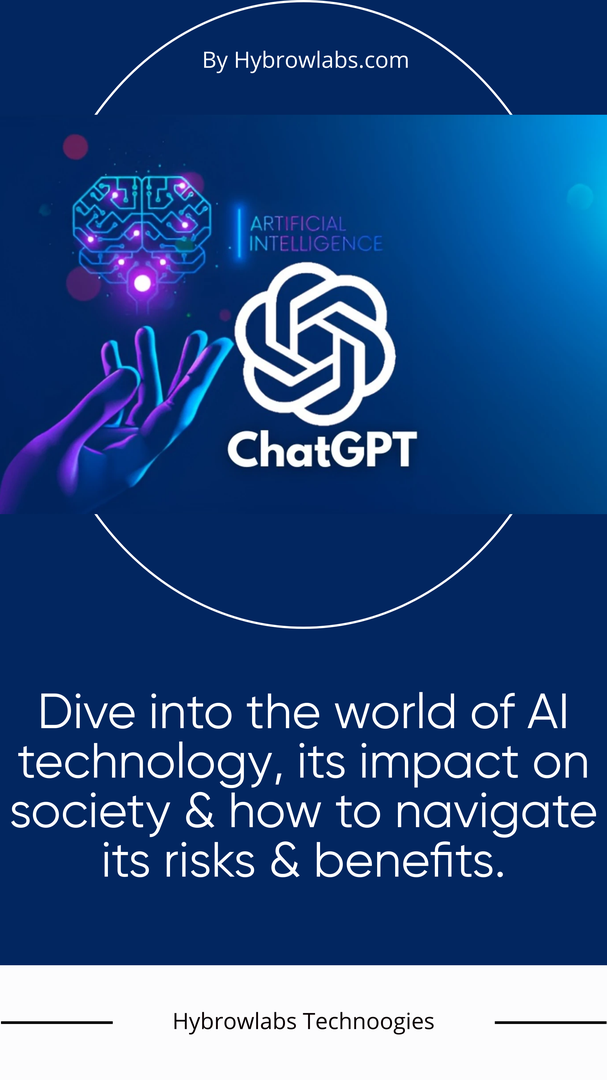
ChatGPT is an AI language model developed by OpenAI based on the GPT-3.5 architecture. It can understand and generate human-like language, making it useful for a variety of applications, including chatbots, content creation, and language translation.
Why ChatGPT?
- Highly intuitive and flexible
- Easy to use with obvious, instant value
- Effectively engage with user
- Highly flexible
- Frictionless
Limitations of Chat GPT:
- Not autonomous
- It requires human intervention which means that humans are still in driver’s seat
- You have to know what you’re doing
- Using ChatGPT is a brand new skill to learn.
- Even with integrations, there are lots of problems to solve
- ChatGPT cannot do everything and has gaps in its knowledge
- Brain in a jar: Not integrated with outside world
Strengths: What Chat GPT can do?
- Can do a little bit of everything, even things that humans cannot do.
- Can help with coding, writing, brainstorming, and can teach you about virtually any topic.
- It is pretty simple to use, and nearly everyone can use it with ease.
- It is cost-effective and is relatively cheap.
- ChatGPT is like a toddler that knows everything, with vast amounts of knowledge and information at its fingertips.
How have automation and AI impacted jobs and the economy?
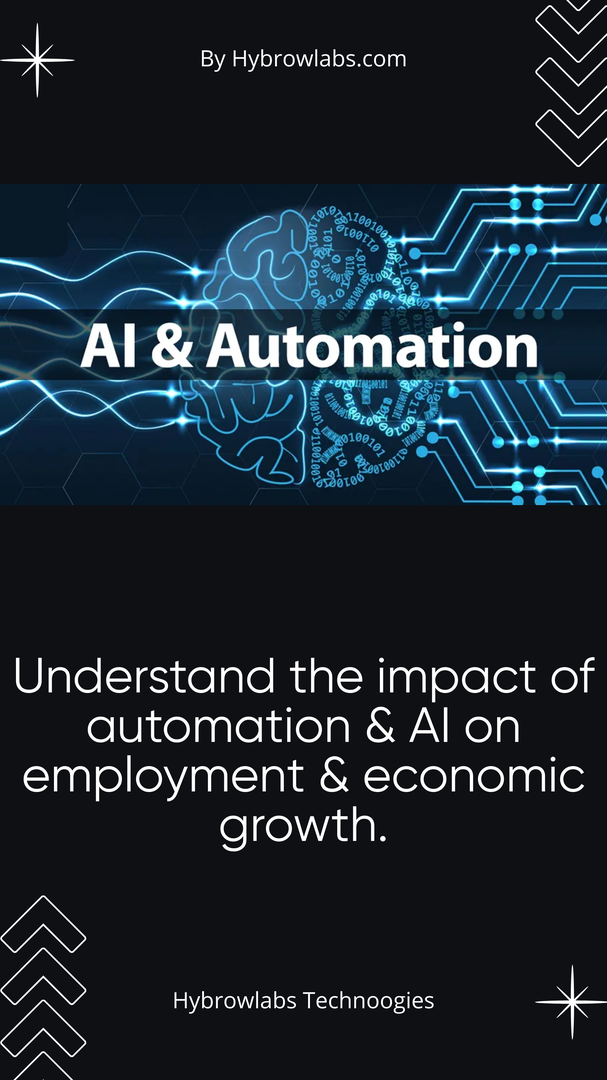
Automation refers to the use of technology to perform tasks that were previously done by humans. For example, automated assembly lines in factories can produce goods faster and more efficiently than humans could. As a result, some jobs that were once done by humans are now done by machines.
1. Impact on Jobs:
- One way that automation has impacted jobs is by making some jobs obsolete. For example, as mentioned earlier, some assembly line jobs have been replaced by machines. However, automation has also created new jobs in areas like engineering, maintenance, and programming. Additionally, automation has increased productivity, which has led to increased profits for companies.
- AI, or artificial intelligence, takes automation a step further by allowing machines to learn and adapt on their own. AI can be used to analyze data, identify patterns, and make decisions without human intervention. This has led to new opportunities in areas like healthcare, finance, and transportation.
- One of the biggest impacts of AI on jobs is that it has created new jobs that require specialized skills. For example, data scientists and AI developers are in high demand. However, some jobs that were previously done by humans may also be replaced by AI in the future. For example, autonomous vehicles could replace truck drivers.
2. Impact on economy:
- In terms of the economy, automation and AI have had both positive and negative impacts. On the positive side, automation has led to increased productivity and efficiency, which has helped companies to reduce costs and increase profits. This, in turn, has led to increased investment in research and development, which has driven innovation and created new industries.
- On the negative side, automation and AI have also contributed to income inequality. As jobs are automated, some workers may be left without employment or may have to take lower-paying jobs. Additionally, the high cost of implementing automation and AI can make it difficult for small businesses to compete with larger companies that have the resources to invest in these technologies.
What is the impact of AI technology on society?
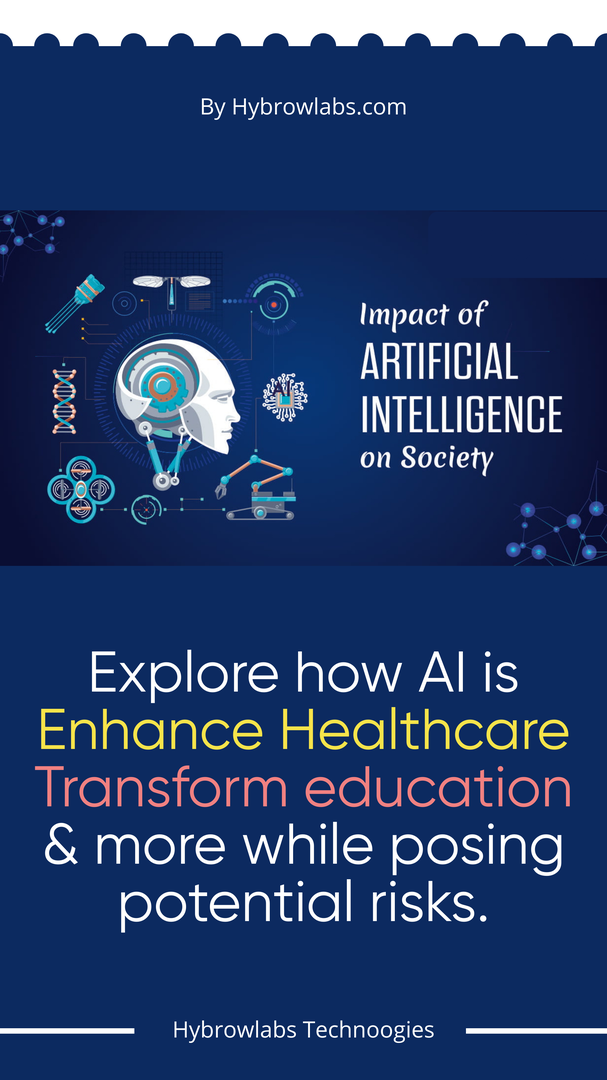
AI technology has the potential to have a profound impact on society in various ways. Here are some of the key ways in which AI is transforming our world:
1. Better Healthcare:
AI can help healthcare providers to diagnose diseases more accurately and quickly, and to develop personalized treatment plans for patients. Additionally, AI-powered robotic devices can assist with surgeries, making them less invasive and more precise.
2. Transforming Education:
AI can help personalize learning experiences for students and provide educators with real-time feedback on their teaching strategies. It can also help to identify students who may be struggling and provide additional support to help them succeed.
3. Better Information:
AI-powered algorithms can help to filter and analyze vast amounts of data, providing users with more accurate and relevant information. This can be particularly useful in fields like journalism and research, where accuracy and speed are critical.
4. Better Use of Resources:
AI can help businesses and organizations to optimize their operations, reducing waste and improving efficiency. For example, AI-powered systems can be used to monitor and control energy usage in buildings, reducing costs and environmental impact.
5. Environmental Impact:
AI can help to address some of the world's most pressing environmental challenges. For example, AI can be used to monitor and predict weather patterns, allowing for more accurate and effective disaster response. Additionally, AI can help to identify and mitigate environmental risks, such as pollution and deforestation.
Of course, like any transformative technology, AI also poses some potential risks and challenges. For example, there are concerns about the impact of AI on employment and the potential for biases in AI-powered systems. As AI continues to develop and become more integrated into our daily lives, it's important for society to carefully consider both the benefits and risks of this technology.
What is the impact of AI on society by 2030? Who’s at Risk?
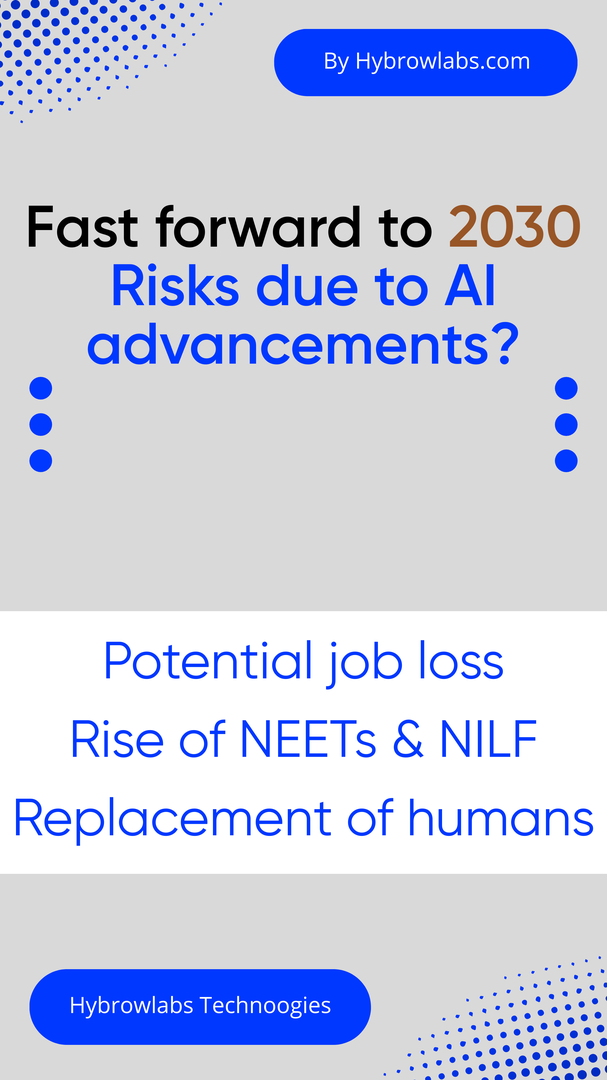
The rapid advancement of AI technology has already begun to have a significant impact on society, and it is predicted to continue shaping the world as we know it by 2030.
1. Aggregate Job Loss
- One of the most significant effects of AI technology on society is the potential for job loss. While AI has the ability to automate many tasks and increase productivity, it also has the potential to displace workers who were previously responsible for those tasks. According to a report by the World Economic Forum, it is predicted that by 2025, over 85 million jobs may be displaced by AI and other technological advances.
- Various jobs that require repetitive tasks or have a high risk of error have already been replaced by automation, such as factory workers, bank tellers, and data entry positions. The increasing use of AI technology is predicted to accelerate this trend, with some estimates suggesting that up to 800 million jobs could be lost globally by 2030 due to automation.
2. Rise of NEETs (Not seeking employment, education and training) and NILF (Not in Labor Force)
- In addition to job loss, the rise of NEETs (Not seeking employment, education and training) and NILF (Not in Labor Force) is also a potential impact of AI on society by 2030. As more jobs become automated, those who are unable or unwilling to adapt to new industries or roles may become disengaged from the workforce. This can lead to a rise in individuals who are not seeking employment, education or training.
- However, it is important to note that the impact of AI on society is not entirely negative. AI technology has the potential to improve healthcare, transportation, and education, among other industries. It can also help to reduce errors, increase efficiency, and improve decision-making in many fields. Therefore, it is crucial to find a balance between the benefits of AI and its potential risks and challenges.
3. Replacement of Humans
- The impact of automation is not limited to specific sectors or industries; it affects workers across various job types and skill levels. Jobs that are repetitive, predictable, and have a high degree of routine are at the highest risk of being automated. However, even jobs that require complex decision-making, such as financial analysts, lawyers, and doctors, are at risk of being replaced by AI technology in the coming years.
- The replacement of human workers with automation is not only limited to the private sector but also affects the public sector. For instance, some countries have implemented automated systems for administrative and clerical tasks, such as processing visa applications or managing social welfare programs. These systems not only reduce costs but also increase efficiency, but they also reduce the need for human workers in these sectors.
What to do about it: Strategies to navigate it:
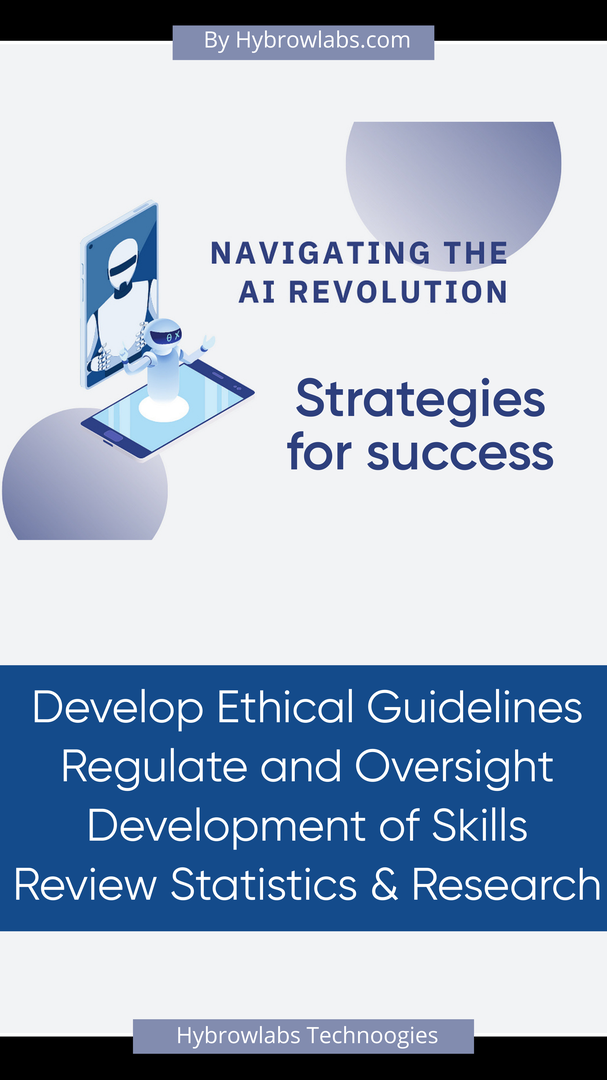
As AI technology continues to advance, it's important for individuals and organizations to develop strategies to navigate its impact on society. Here are some strategies that can help:
1. Develop Ethical Guidelines:
AI technology can be used for good or bad purposes, so it's important to develop ethical guidelines to ensure it's used responsibly. Governments, organizations, and individuals can work together to create guidelines that ensure AI technology is developed and used in a way that benefits society as a whole.
2. Regulation and Oversight:
Governments can create regulatory frameworks and oversight mechanisms to ensure that AI systems are developed and used in a safe, transparent, and accountable manner. This can involve setting standards for data privacy, cybersecurity, and algorithmic fairness, as well as establishing independent oversight bodies to monitor and enforce compliance with these standards.
3. Skills Development:
Governments can support the development of the skills needed to work with and manage AI technology. This can involve investing in education and training programs to develop the necessary technical and ethical competencies, as well as promoting lifelong learning and reskilling programs to adapt to the changing demands of the labor market.
4. Some stats and studies:
- The United States has established the National Artificial Intelligence Initiative Office, which aims to coordinate and accelerate AI research and development across various government agencies and departments.
- The IEEE Global Initiative for Ethical Considerations in AI and Autonomous Systems has developed a set of guidelines for ethical AI, which include principles such as transparency, privacy, and human oversight.
These stats, studies, and guidelines can serve as a starting point for individuals and organizations seeking to navigate the future of AI technology. By staying informed about the latest developments in AI, adhering to ethical guidelines, and actively engaging with stakeholders, we can help ensure that AI is developed and used in a responsible and beneficial manner.
Conclusion
In conclusion, the impact of AI technology, such as ChatGPT, on society by 2030 is immense. It has already begun to transform various industries, and it will continue to do so at an exponential rate. However, as with any transformative technology, there are both risks and benefits to consider. To navigate these risks and benefits effectively, it is essential to develop strategies like those provided by Hybrowlabs. As we move forward, it is crucial to embrace AI technology and its potential to create a better world, while also being mindful of its potential risks and limitations. By doing so, we can ensure that AI technology is used in a way that benefits everyone and creates a brighter future for us all.
FAQ’s
1. What are the benefits of AI technology in healthcare and education?
AI technology has the potential to improve patient outcomes in healthcare by helping with early disease detection, personalized treatment plans, and medical image analysis. In education, AI can enhance student learning experiences through personalized tutoring, automated grading, and adaptive learning tools.
2. What are the potential risks associated with AI technology, such as ChatGPT?
Some of the potential risks associated with AI technology include bias in decision-making, privacy violations, job displacement, and unintended consequences. ChatGPT may also be vulnerable to malicious use, such as spreading false information or manipulating individuals.
3. How can we address ethical concerns and biases in AI development and deployment?
To address ethical concerns and biases in AI development and deployment, it is essential to promote transparency, accountability, and inclusivity in the development process. This includes diversity in the teams developing AI technology, robust testing for bias, and the creation of ethical frameworks for AI use. Regular monitoring and evaluation are also necessary to identify and address any unintended consequences of AI technology.



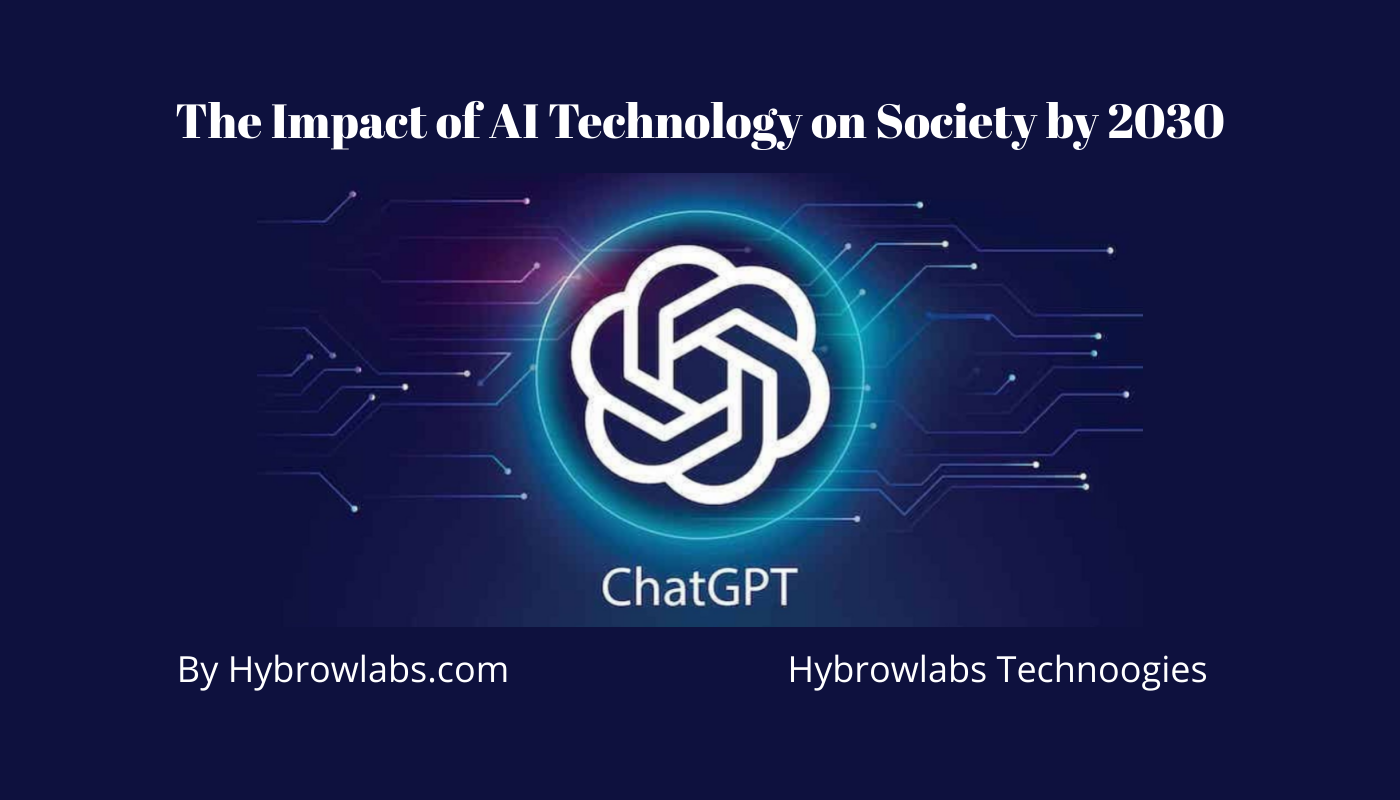


a3dc85.jpg)

.jpg)
fd8f11.png)


.jpg)
.jpg)